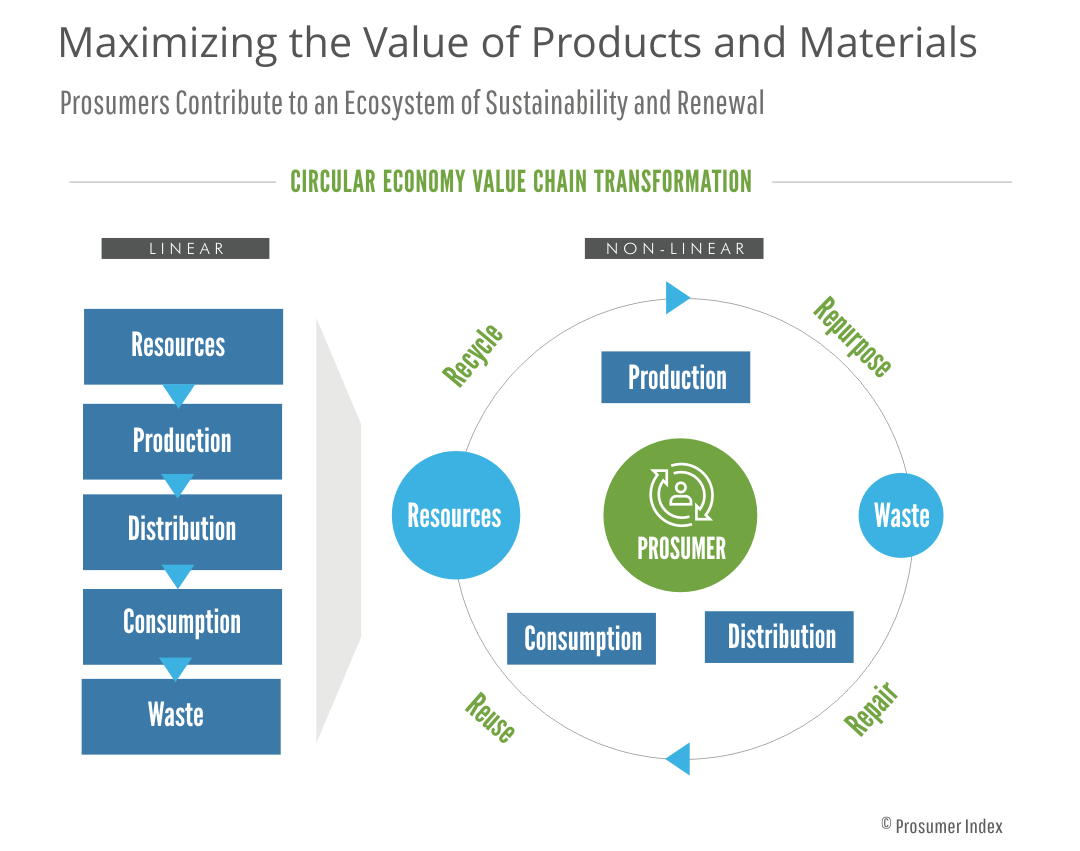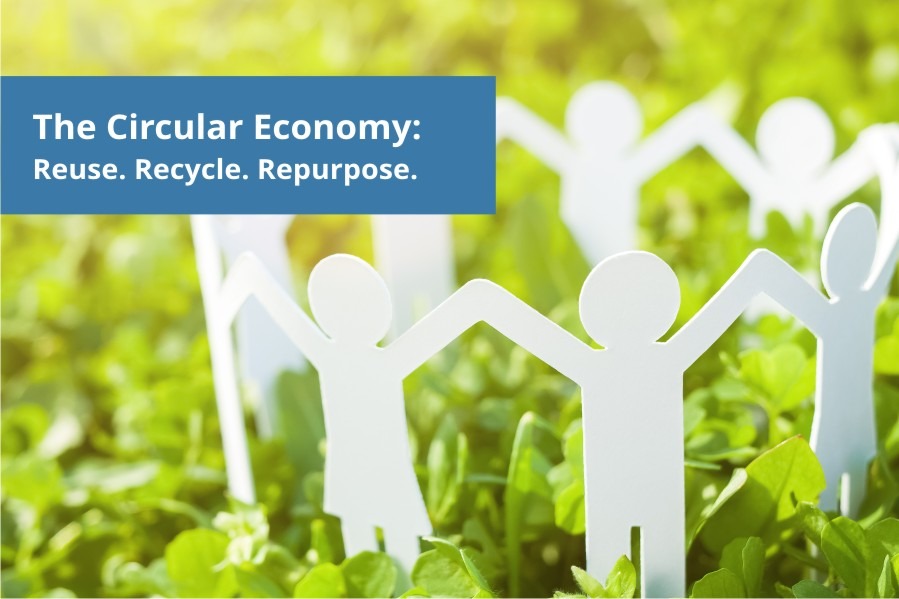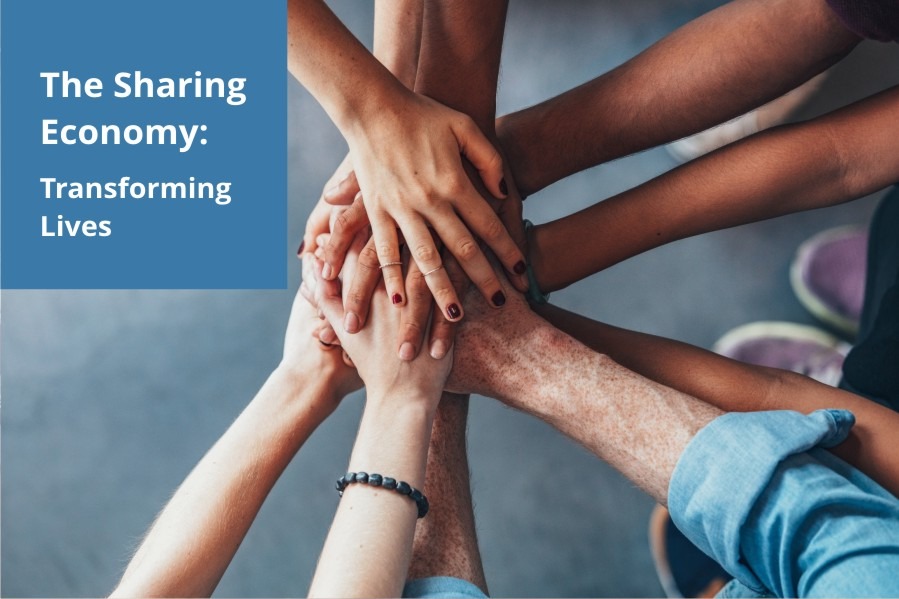The Circular Economy: Reuse. Recycle. Repurpose.
Extending Product Lifetime and Use
The practices in the Circular Economy cover a broad scope of applications and policies. It is an economic system that takes a non-linear approach to markets, customers and resources. It combines innovation and sustainability. It also takes into consideration the ecological and social impact of all those who participate in the supply chain.
Gaining Traction
The idea of reducing waste, keeping products and materials in use to regenerate them for a new potential is now again in vogue. The concept of repurposing has been revitalized by new-age hobbyists, the “maker” culture and DIY-hacker community. For some it is about the stewardship of the earth and others simply see it as a more cost-effective way to achieve their goals.
Closing the Circle
Traditional resource value chains are open and linear. The Circular Economy, on the other hand, is restorative and regenerative by design. Rather than continually adding new resources in to the system, it is a closed economy that maximizes the value of the resources it already has and reducing waste.
Prosumers have been quick to adopt to the emergence of the Circular Economy. For them it is more than just recycling. They have many incentives to participate, as circularity is embodied in their way of life. Many of the other economies they influence – like the Platform Economy and the Shared Economy –are also based on networks and shared resources.

For secondary markets, the Circular Economy works well in conjunction these economies as it’s interdependent and can create enormous value for resources that have already been allotted.
Circular Innovation in Primary Markets
Enhanced innovation hubs and new economy businesses have been taking this trend a higher-level by integrating this value-added approach to create interest in primary markets as well. Utilizing this reframed way of thinking is finding renewable opportunities that incorporate smart technology, new designs and disruptive business models to create more efficient prosumer-oriented products and services.
With self-sufficiency and self-sustainability as the main goals, industries like food services, mobility, buildings, water and energy all have caught the prosumer’s attention. Waves of “SMART” technology has introduced innovative solutions with prosumers embracing and continually seeking ways to co-create in these new market segments as they emerge.
Energy in particular has enormous appeal to the prosumer market through renewable resources like solar, smart cars and smart grids, The energy industry’s move toward a decentralized distribution of supply has optimized energy management and created new roles for contribution.
As a result, self-directed energy is becoming increasingly more efficient and cost-effective. According to Consensys, the decentralized energy along with the integration of blockchain technologies and artificial intelligence has the potential to reduce energy bills by around 40%.
Think Globally. Act Locally.
Prosumers steadily tend to search for ways that create and leverage systems that can work long-term for economic, societal and environmental improvement. Working together businesses and individuals are able to make the Circular Economy work at any scale, but it is most effective when starts at the local level where small changes make a significant difference.
On a global level, prosumers strive to pursue opportunities engage with companies and brands that reflect a balance of social responsibility between an organization’s corporate philosophy, practices and culture.
Learn About Other Prosumer Related Economies
PLATFORM ECONOMY | EXPERIENCE ECONOMY | SHARING ECONOMY | LIFESTYLE ECONOMY
Share Prosumer Index
Impacting Innovation. ProsumerIndex.com is an independent research site focused on identifying and following innovative prosumer-driven thematic trends that are driving the new economies and impacting global markets. This article is for informational purposes only and to provide general knowledge about Prosumers, related brands and companies. We do not provide investment advice or product recommendations. The information on this site should not be used as a substitute for business, professional financial, legal, accounting or tax guidance.




